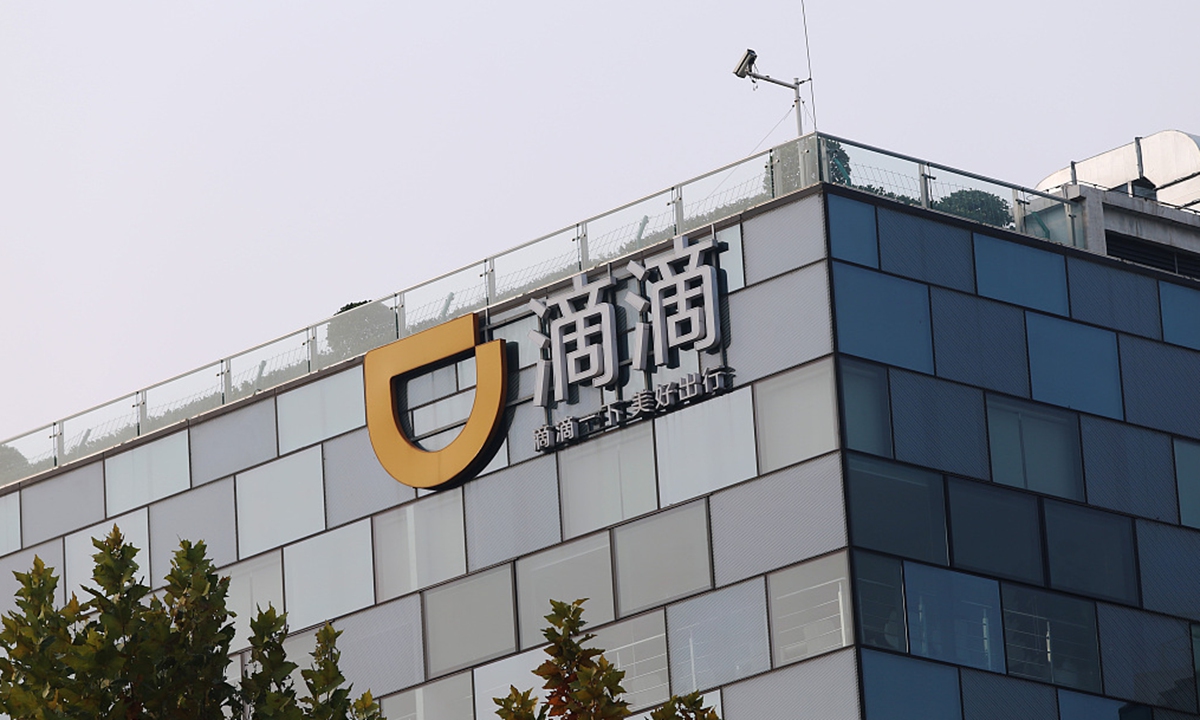
The headquarters of DiDi in Beijing Photo:VCG
Didi Global, a ride-hailing giant in China, said on Monday that domestic cybersecurity authorities have allowed it to resume new user registrations effective immediately, a move signaling its more than one-year cybersecurity probe is winding down.
The move indicates that Didi will go back to business as normal, and it will inject confidence into China's internet companies, giving full play to the healthier platform economy to spur overall economic activity, experts noted.
"For more than a year, our company has carefully cooperated with the national network security review, seriously dealt with the security problems found in the review and carried out comprehensive rectification," the company said in a statement.
Didi will take effective measures to ensure platform safety and data security, as well as safeguard national cyperspace security, it added.
"The probe of Didi demonstrated the country's resolve to clamp down on data breaches and misuse as part of a broader move to protect the digital economy from the unchecked expansion of capital and ensure the healthy development of the internet-based platform economy," Liu Dingding, a Beijing-based independent tech analyst, told the Global Times on Monday.
In July 2021, the Cyberspace Administration of China (CAC) announced a cybersecurity review of Didi, and it ordered the removal of 25 Didi-related apps including Didi Enterprise Edition due to "serious violations in collection and use of personal information."
After a one-year probe, the CAC fined the ride-hailing giant 8 billion yuan ($1.2 billion) for 16 legal violations involving the illegal collection of data from drivers and passengers in 2022.
In the same year, the company ended its 11-month tenure on the New York Stock Exchange and suspended plans for a Hong Kong listing.
"After Didi meets domestic regulators' demands to overhaul data security, it is expected that the company will be listed in Hong Kong this year," Liu said.
According to the expert, in the past two years, China has initially formed a system of governing the internet by law, a system that can guarantee that the internet industry develops more soundly, not just more quickly.
For instance, China released 20 measures in December 2022 to build basic systems for data, aiming to give full play to China's massive data and rich application scenarios to strengthen the digital economy and boost high-quality economic development, while also stressing regulations to protect national security related to data transactions.
Liu added that the new move is in line with efforts made by the Central Economic Work Conference to support digital economy platforms. At the conference, which mapped policy priorities for 2023, the country vowed to support platform enterprises in leading development, job creation and international competition in a big way.
"The development and recovery of the economy cannot be achieved without the platforms, which provide services to Chinese consumers and directly or indirectly provide jobs to tens of millions of people," Liu said.
Global Times

